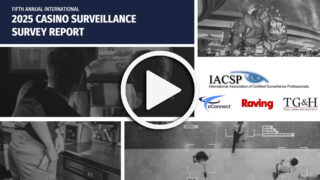Why “Hire for Attitude – Train for Skill” Fails – Part II of II


How your department trainers can set the stage for success
In Part I of this series, we went over four suggestions to improve your basic foundational training, including Casino 101 basics, interdepartmental teamwork, guest service philosophy, and finally, dispute resolution. Next, we’ll move on to tips to help with your departmental training.
So now that your new employee has completed their training, he or she is handed off to their designated department. I’ll use some examples specific to the player development department to help. Giving your employees the tools, with detailed, department-specific training, will help keep their stress and frustration at a minimum. What are the key components that will help ensure the best outcome?
The Next Steps
How does a new employee learn how to do their job while trying to make it through a day dealing with guests, management and coworkers? All the while, keeping guest service at an excellent level, maintaining profitability, entertaining guests so that they come back, AND trying to stay sane? The answer is … by teaming your new employee with a dedicated trainer!
You know that having a consistent, job-specific training program is necessary. By utilizing designated trainers, training will be consistent. A dedicated trainer is someone who knows the job inside out (and enjoys “talent development”). Not only has this type of training program proven to minimize employee turnover, but it is an excellent way to reward valuable employees and to introduce an added career path.
Essential Training Components
Again, the key here is time. Don’t just hand them a three-ring binder full of memos, policies and procedures and send them on their way. People learn best by seeing AND doing. That is why trainers are so important. Trainers should have a detailed checklist/outline that will not only help them keep on track, but can also function as a valuable tool for evaluation during the training period. The checklist/outline should contain the following subjects:
1. Departmental Policies and Procedures
Each employee should receive a complete departmental manual that contains all job-specific policies and procedures. In the case that the company has a guest service philosophy, this is where more details can be taught and consistency maintained. For hosts, it’s vitally important to let them know their authorization limits and how to best leverage.
2. Dispute Resolution
As was discussed in Part I, this is so important and so often overlooked in training. Teaching your new hires how to deal with difficult situations and the proper chain of command, is crucial to delivering best guest service. One of the things I have seen too many times is that the hosts become the “go-to Mr./Ms. Fix It All” for everything. That is not what hosts (or the PD department as a whole) should be used for. Teaching your team what complaints or problems they are responsible for and what needs to be directed to another department, will keep them from getting overwhelmed with every problem in the casino. Hosts can be great facilitators in helping a guest resolve a problem by guiding them through the labyrinth of craziness that is the casino, but they shouldn’t be used as the overall problem solver.
3. Systems and Technology
Technology is a wonderful addition to the casino world! Unfortunately, each casino’s level of technology can be vastly different, depending on needs and budgetary constraints. So, even though someone may have experience, they may not know your particular systems. Keep in mind, some of your older employees may have little to no experience with not only technology in general (this includes smartphones and computers), but with all the various casino systems. So, extra time will need to be taken. All training manuals should include screenshots and room for the employee to make notes. This is especially helpful, considering all of the different casino management and hotel management systems in the market. Having a set process for how to enter complete information, remarks, important guest information, etc., is the best practice for maintaining consistent guest service. Include backup manual processes, as well! Technology is great, but there will be times when it isn’t available, and nothing adds to the stress level more than when no one knows what to do when these situations occur and a guest needs a comp!
4. Shadowing
This is such an important step, and many times it’s done way too quickly or not at all. This is where your new team member will get hands-on experience with guidance. I have found that shadowing first (the new hire shadowing the trainer) and last (roles now reversed) in the training process has worked really well, especially when the new employee has no experience. It helps them have a frame of reference when discussing policies and procedures. Since your hosts and PD staff become the face of the casino, proper introductions need to be made with your VIP guests and loyal regulars.
It’s a Process
Motivational speaker Zig Ziglar said, “What’s worse than training your workers and losing them? Not training them and keeping them!” New employees WILL make mistakes (and should be allowed to, up to a point). Training is a process , and mistakes can often be wonderful tools for learning. They should not be used to embarrass anyone. When training, mentoring or coaching, always encourage growth; never talk down to your team.






